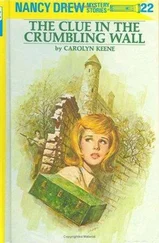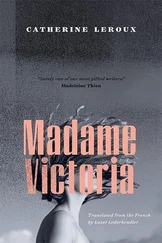The first day, her awareness still kept pace with her. Carmen let herself take in the landscape, the taiga and its thorns, the earth smothered beneath the snow, the stigmata of petroleum leaking from a pipeline. She still had the luxury of being attentive to trifles like the torn skin of her heels, her toe turned blue, and the burning sensation that had overwhelmed her lungs during the first hours. At kilometre forty-two, the distance of a marathon, she began to regret not having chosen the 565-kilometre run rather than the 160-kilometre run. At kilometre fifty-four she wondered what sort of mental illness had prompted her — who had never experienced real winter weather — to enter this insane race in the middle of February in the heart of the Yukon. At the next rest stop she was told there was only one woman ahead of her, which spurred her into returning to the trail as soon as she’d had her portion of stew. Four kilometres later she collapsed and a patroller had to help her put her tent up for the night.
Now she is soaring. The race no longer matters and her thoughts wander as in the moments before dreaming, that minute just before one tumbles toward sleep. Her mind is filled not with her worries, her projects, the peaks and troughs of her personal life, but with insignificant fragments of her daily existence: the broken window pane in the dining room, the sumac sucker that she’ll have to burn when she gets back, the flock of small birds of prey on the hills around the house. Snapshots that remind her she is human and has a life, before she dives back into the great white emptiness of the race.
Although she had signed up months before Frannie’s death, the fact of taking part in an event dubbed the “Death Race” hardly seems trivial. As she packed her bags, scarcely a week after the burial, she recalled Simon’s terse remark the day of the funeral: “We’re next.” She had brushed this off with a joke before heading off to mythical Whitehorse, ready to run as long as necessary to ascertain that she was very much alive and Frannie would not be coming back from the dead.
Just fifty kilometres left, a distance she has covered hundreds of times, sometimes without giving it any thought, occasionally in utter pain. A distance long enough to reawaken interior struggles, especially after two days of contending with arctic temperatures. Night falls. Running at a steady pace, Carmen hauls her gear without feeling the weight of the sled or the icy cramps gnawing at her muscles. In the fading light she passes the last heated rest stop but the thought of pausing there does not cross her mind. She leaves the open stretch and plunges once more into the forest, determined to run through the night, to stop only after crossing a finish line, something intelligible in the wild arctic winter.
A name. Now he’s got his hands on a name, unspoken at first, written down in Frannie’s arthritic script and then his own clearer, more regular handwriting, a name he has copied dozens of time. Roberto Aurellano. It took three days before he could bring himself to say it out loud. As soon as he felt up to it, he burned the letter, hoping to break the spell cast the night of Frannie’s death by her innocent messenger, whose only means of defence was a cat’s tail and the two copies of the letter. He wonders if Carmen has kept hers.
So Frannie had no intention of leaving this world without enlightening her children as to their origins. She simply wanted them to learn the truth without her. Which is why she went to the trouble of drafting her explanations in a tone as dry as her life had been and then of entrusting them to the young student who did double duty as her nurse and her maid.
While it is practically impossible to get over the death of your mother, no matter how irresponsible she may have been, Frannie’s death is nothing compared to what she hid from them. During that night of tremors and departures, Simon lost more than his mother; his sister was taken away from him. He had always envisioned undertaking the quest for the father alongside Carmen, and now he was left on his own. Still today, ensconced in the driver’s seat of the patrol car washed by the downpour, the clamour of that solitude continues to deafen him, to trumpet the great turning point of his existence.
His partner scurries back to the car balancing a tray of coffee and muffins on one hand. The other hand holds a bouquet of balloons, which he unceremoniously stuffs in the rear of the car, where there should be one or two sinister-looking criminals. A green balloon bursts, giving Simon a start.
“It’s my daughter’s birthday. Six years old,” the policeman explains sitting down beside Simon.
“Which leaves you seven more years of happiness. Enjoy them,” Simon grumbles as he grabs a coffee.
The rain drives the vagrants out of the streets, making it easy to carry out today’s orders, which are to keep them far away from the hotel where some dignitaries are gathering. The fog rolls in from the Pacific and envelopes the hall in a bluish filter that snags the thoughts of the few passersby.
During the funeral, a ceremony infused with a flamboyant Catholicism that Frannie had never been seen practising in the past, Simon scanned the crowd. Any strangers over the age of sixty-five were subjected to his discreet scrutiny. To prevent any potential fathers from slipping out he came up behind them and whispered, “Roberto?” None of the five men ambushed in this way answered to the name. If his father was still alive he had not bothered to come say farewell to the woman who had borne his son. As the coffin was being wheeled out of the church, Simon’s heart almost stopped: he could have sworn he’d heard someone knocking inside the casket. He slowed his pace for a few instants to regain his composure and then continued on through a shower of religious hymns.
Carmen wept a little after the mass, when a few rare individuals still attached to Frannie gathered around a tasteless buffet, and for the first time Simon felt distant from her distress. Claire and Alan were showing signs of impatience, unaffected by the death of a woman they had not appreciated when she was alive, while Jessica tried to conceal the enormous camera with which she was photographing the event — inconspicuously, she believed — as though it was a county fair. Exasperated by his family’s behaviour, Simon left the lunch without saying goodbye to the guests.
Ever since then something has been brewing inside him. When he quarrels with Claire she ascribes everything to a midlife crisis, a vague and stupid notion far removed from what he is actually going through. Simon has no wish to seduce other women or buy a convertible or Botox the frown lines on his forehead. What he wants is to find a cave, seclude himself in it, and huddle far away from the light of day and shouting voices. He wants to taste the magmatic solitude of geological faults. His crisis has nothing to do with life’s high noon; it is a Cyclops, a yeti, a cave painting.
The receiver sputters the report of a hold-up a few blocks from the intersection where Simon and his partner are wolfing down their muffins. They switch on the siren, utter some numbered codes for the dispatcher, and the car pulls out cutting through some giant puddles. But not even speeding up hills or running red lights can stir Simon’s blood anymore. As he presses down on the gas pedal, all he can think of is burying himself in rock and chewing on stones. A way to be completely alone.
During all those years Carmen never once touched that orange coat, still abundant but transformed by the absence of life. The pliant fur lets itself be stroked without reacting, without standing on end or secreting the invisible oils animals drape themselves in to neutralize human petting. It is nonetheless a pleasant, even soothing gesture, and Carmen has come to understand what for so long she took to be a compulsion of Frannie’s.
Читать дальше











